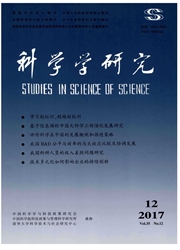

 中文摘要:
中文摘要:
在一些学者呼吁微观化研究联盟问题的背景下,本文试运用"能力—机遇—意愿"理论,对研发联盟中个体间知识交互以及对其在本单位工作绩效的影响进行了探讨。结果显示,与教育程度相关的能力对个人在本单位的工作绩效产生显著影响;同时该影响可以被联盟正式网络内中心位置所提供的机遇所增强;但以外激励为代表的意愿水平在上述关系中并未扮演重要角色。该研究结果对联盟背景下知识交流与创造、联盟学习、联盟治理等理论的发展具有一定的参考意义。
 英文摘要:
英文摘要:
Taking scholars' suggestion about studying alliance on a micro level,with the capacity- opportunity- willingness theory,this study tries to analyze individual' s knowledge exchange and individual' s original organization- related work performance in an RD alliance.It finds that education- based capacity has a significant effect on individual' s original organization- related work performance,and this effect is strengthened by the network position — related opportunity,whereas the extrinsic motivation representing willingness does not play a significant role in their relations.This result is meaningful for the development of several theories,such as knowledge transfer and creation in a context of RD alliance,alliance learning,and alliance governance.
 同期刊论文项目
同期刊论文项目
 同项目期刊论文
同项目期刊论文
 期刊信息
期刊信息
